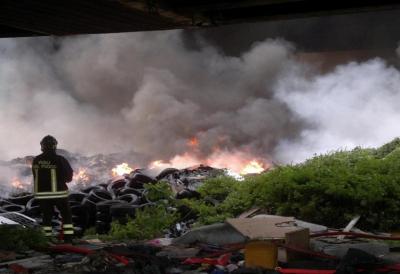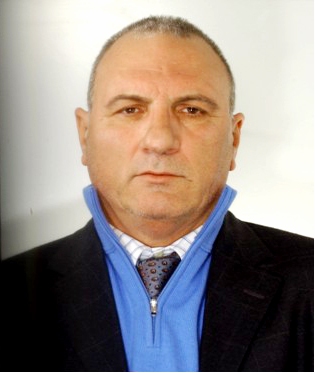Ecomafia arrest inspires “Land of Fires”
asia guerreschi
|
10 December 2013

A firefighter stands before a burning pile of trash
ROME-The arrest of ecomafia don Cipriano "Garbage King" Chianese offers hope to the mob-ravaged “Land of Fires” area, Italy watchers say. Chianese, nicknamed the “King of Garbage”, is said be the major boss behind the “ecomafia” garbage-trafficking wing of the Casalesi clan of the Camorra. Police allege that he has trafficked illegal waste in the Naples area and has also extorted quotas and the management of the transportation company Mary Trans.
Chianese had been serving a house arrest sentence for a previous indictment in an ongoing trial related to poisoning land and water in Naples, deemed an “environmental disaster”, but was brought to jail on Tuesday.
According to investigators, Chianese had created and directed the illicit traffic of garbage in the entire region, though specifically the area between Naples and Caserta, nicknamed “Terra dei Fuochi” or “Land of Fires” due to its critical environmental condition.
The arrest of Chianese comes following a law which was passed earlier this month that made the combustion of garbage without authorisation illegal and mandated that the lands are inspected within 150 days. The new law focuses on the Campania region, and most especially the “Land of Fires”.
At least 6,000 illegal waste fires were reported in Campania between January 2012 and August 2013, according to environmental group Legambiente. Now the Italian government is working to curb that number.
“For the first time national institutions are dealing with the emergency in the ‘Terra Dei Fuochi’,” said Prime Minister Enrico Letta.
“Severe penalties will be declared for those who violate the law,” said president of Campania Region Council, Paolo Romano, who called the law a “positive turning point” for the region.
The new law is important because Naples has been known to have issues with waste management since 1994, though the issue seemed to be resolved when two major landfills were opened in 2011. The problem, however, is that illegal waste dumping and combustion also affects the environment.
In a 2012 study conducted by the Superior Institution for Health, the organisation found that illegal garbage dug into the ground is a “measurable problem.” The study highlighted that the health state of Campania’s population is at an elevated danger in comparison to the rest of Italy, with a mortality rate at “two percent higher in contrast to the national average with peaks of 29% in some districts.” Some have also attributed the garbage dumping to the increasing levels of cancer in Campania.
However, epidemiologist Fabrizio Bianchi has argued that the damaged areas are “extremely restricted.” Further, Paolo Masi, the director of the Agrarian Department at the University Federico II in Naples, has stated that plants do not absorb everything that is in the soil. “Transmission of toxic substances from the soil into the plants is a diminished phenomenon,” he said.
Nonetheless, Signor Bianchi has warned that “there should not be the assumption that agrarian products cultivated in those areas nearby do not contain harmful substances.”
No matter how serious the consequences actually are, officials are working to fix the situation and prevent a worse problem in the future.
Don Patricello, a priest who has become the symbol of the revolution in the “Land of the Fires”, hopes for “laws able to stop the phenomenon of the illicit deposit of garbage.”
Many officials believe the new anti-combustion law will do just that.
“It will allow us to better confront the emergency reclamations, to increase the level of legality, and to enforce action against the ‘ecomafia’ and the clans that have enriched themselves through the illegal disposal of garbage,” said Ermete Realacci, the president of the Environmental Commission of the House.

Cipriano Chianese


